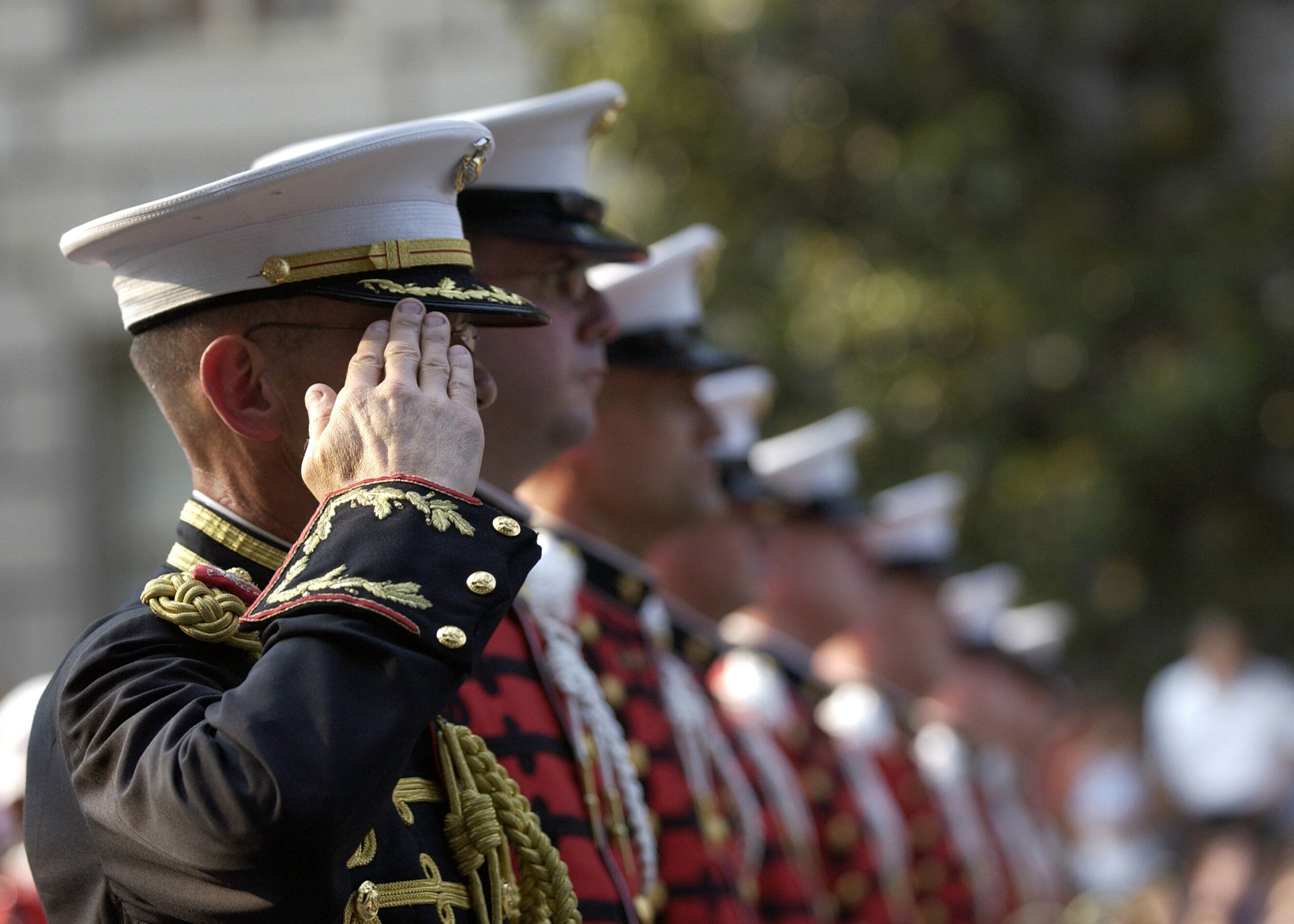
Military divorce is usually considered to be significantly different from a non-military divorce. In order for any court to assert its jurisdiction over a military divorce, the Petitioner will have to serve the active member with a petition for the dissolution, as well as a valid summons. Because of this, if the service member in question is currently deployed overseas, the process of completing a military divorce can be somewhat challenging.
These differences generally make themselves known in the process of obtaining personal service, complying with rules and regulations set by the military, and dividing a military pension. Military divorce has special procedures that need to be followed especially if the member is active duty.
The Military and Divorce
Divorce is not a simple process for anybody. Military divorce can be especially taxing within California because of the requirements the state imposes on service members that are deployed, living overseas or currently existing outside of the California jurisdiction. Parties who are considering divorce with an active duty military member will often benefit from learning more about the path that is ahead of them before they start this trying process.
If you are the Petitioner in the case and your spouse is a service member who has been deployed overseas, completing service becomes extremely difficult. The Servicemembers Civil Relief Act (SCRA) will be a factor in your case. SCRA will postpone or suspend certain legal matters that are pending in court while the servicemember is located.
The law states service members cannot be held responsible for not replying to a divorce petition when they are deployed, but it does not allow the military spouse to neglect the papers. If the service member fails to respond to the divorce, then the court may choose to appoint a reserve, civilian natural or active duty person as an officer of the court to serve the papers on their behalf.
The SCRA will appoint an attorney to located the military member and report to the court on his location and ability to participate in a divorce. During that time, there will be a stay in the case meaning the court cannot make any orders for support or division of assets. If you are in need of support and your spouse is not paying, you should immediately contact their command to enforce military regulations for family support. The court cannot make any orders while the stay is in place.
Federal Laws Regarding Military Divorce
Recently, federal laws and regulations have undergone some changes that should make personal service much simpler for military couples with children when the spouse is stationed overseas. Regardless of the location of the spouse in active duty, uniformed service members and federal agencies will be required to take on the responsibility of facilitating the legal process.
Military assets, including military pension of the service member, are valuable, and can be divided between spouses much like the standard assets within a regular divorce case. However, it is necessary for both spouses within a military divorce to understand how the court deals with dividing military pensions. Not all service members will be entitled to a pension, it does depend on the years of service. If there is a pension, it will be divided by the time rule which looks at the length of service while married. The portion that was acquired during marriage wil be split 50/50.
There other assets that are only issues in military divorce that need to be give special care. There is the Survivor Benefit Plan (SBP) election that needs to be discussed. SBP needs to be ordered in order to be received and there are different levels of election, not all the elections will be covered by support payments. There is also the Servicemembers Group Life Insurance (SGLI) that needs to be divide.
There are assets that need to be divided in military divorces that are not present in a non-military divorce. It is important to understand what you are entitled to and what needs to be included in your divorce judgment.
Division of Military Pay and Pensions
Community Property Rules Apply
California is a community property state, meaning all income earned and assets acquired during the marriage are generally split 50/50.
That includes military pay and pensions, but federal law affects how those are divided.
Uniformed Services Former Spouses’ Protection Act (USFSPA)
This federal law allows state courts to treat military retirement pay as marital property and divide it in divorce — but it sets specific rules:
-
The “10/10 Rule”: For the Defense Finance and Accounting Service (DFAS) to pay a former spouse directly, the marriage must have lasted at least 10 years, and those years must overlap with 10 years of military service.
-
Even if the 10/10 rule isn’t met, the California court can still divide the retirement — the payments just come from the service member directly, not DFAS.
Disability Pay Exception
VA disability benefits cannot be divided as community property, but they may affect the calculation of spousal or child support, since they count as income.
Residency Requirements
In order for the court to have the ability to properly divide a military pension, the court must have the military spouse’s legal consent, or legal residence within a state. A spouse simply being stationed within a state for a temporary period of time does not constitute residency. If the military member has maintained residency in a different state, California may not have jurisdiction to divide the military member’s pension. Consent of the spouse does not have to be verbally expressed, as long as the court has proper jurisdiction it has the ability to divide military retirement, regardless of the overall length of the marriage.
Service Member Civil Relief Act (SCRA) Protections
The Service Member Civil Relief Act (SCRA) is a federal law that protects active-duty service members from being disadvantaged in civil court proceedings while serving.
In divorce cases, this means:
-
The court can delay (stay) proceedings if military duties prevent participation.
-
A default judgment cannot be entered against a deployed or unavailable service member without ensuring they’ve had a fair chance to respond.
-
The service member may request a postponement of the case while on active duty or shortly thereafter.
These protections ensure fairness but can also make the process take longer than a civilian divorce.
Military Benefits for Former Spouses
Depending on the length of the marriage and overlap with service, former spouses may qualify for certain ongoing benefits:
| Benefit | Requirement | Details |
|---|---|---|
| Full TRICARE & base privileges | “20/20/20” rule: 20 years of marriage, 20 years of service, and 20 years overlap | Full military benefits continue until remarriage |
| Limited TRICARE (1 year) | “20/20/15” rule: 20 years marriage, 20 years service, 15 years overlap | Transitional coverage for one year post-divorce |
| Commissary/Exchange Access | Same as 20/20/20 rule | Retains privileges if criteria met |
If the marriage doesn’t meet these thresholds, the non-military spouse typically loses these benefits upon divorce.
••Minella Law Group Can Help••
A military divorce in California involves unique legal layers that go beyond standard family law. Understanding how state and federal laws interact — especially regarding jurisdiction, pensions, benefits, and deployment — helps both spouses protect their rights and plan their futures with clarity. We regularly represent service members and military spouses in San Diego and across California, ensuring fair, informed outcomes that respect both the service and the family.
📞 Call Minella Law Group today at 619-289-7948 to schedule a confidential consultation with one of our family law specialists. We’ll listen to your concerns, assess the situation, and create a clear strategy tailored to your goals.
📝 Prefer email? Fill out our online contact form and a member of our legal team will get in touch with you promptly.
Frequently Asked Questions About Military Divorce
Does military divorce follow different laws than civilian divorce in California?
Yes — both state and federal laws apply.
A military divorce is still a California divorce, but several unique federal statutes interact with state family law, making the process more complex.
Key differences include:
-
SCRA (Servicemembers Civil Relief Act): Allows active-duty military members to pause or delay divorce proceedings if deployment or duty prevents participation.
-
USFSPA (Uniformed Services Former Spouses’ Protection Act): Governs how military retirement pay is divided in divorce.
-
Jurisdiction rules: You can often file in California even if you’re stationed elsewhere, depending on residency and military orders.
-
Service of process: Special rules apply if a service member is deployed or stationed overseas.
The result: Military divorce looks similar to civilian divorce, but it has additional layers that require a military-savvy family law attorney to navigate properly.
How are military pensions and benefits divided in a divorce?
This is the #1 financial concern for military families.
Here’s how it works in California:
Military retirement is community property
Any portion of military retirement earned during the marriage is subject to division under California’s 50/50 community property rules.
The 10/10 Rule
A common misconception:
➡️ The “10/10 rule” does not determine whether a spouse gets part of the pension.
It only affects how the pension is paid.
-
If the couple was married at least 10 years, overlapping with 10 years of military service, DFAS will pay the former spouse directly.
-
If not, the service member must pay the marital share directly to the ex-spouse.
Disability pay cannot be divided
VA disability benefits are not divisible as community property, but they can be counted as income for:
-
Child support
-
Spousal support
Other benefits with special rules:
-
TRICARE, commissary, and base privileges depend on the 20/20/20 or 20/20/15 rules.
-
SBP (Survivor Benefit Plan) elections must be made during the divorce to protect the former spouse’s pension share.
Because of these overlapping state and federal laws, military pension division is one of the most technical parts of a military divorce.
How does deployment or PCS relocation affect child custody?
California law protects military parents — deployment alone cannot be used against you in custody decisions.
Under California Family Code §3047:
-
A parent’s absence due to deployment, mobilization, or PCS orders cannot be considered abandonment.
-
Any temporary custody change made because of military duty must be reversed when the parent returns, unless doing so would harm the child.
-
Courts encourage:
-
Virtual visitation (video calls, messaging apps)
-
Delegation of visitation to grandparents or close relatives
-
Detailed long-distance parenting plans
-
When the military parent is the custodial parent:
-
They may need to request temporary orders allowing the child to stay with a designated caregiver during deployment.
When PCS orders require relocation:
-
The move triggers a relocation (move-away) analysis, but courts recognize that PCS orders are mandatory, not voluntary.






